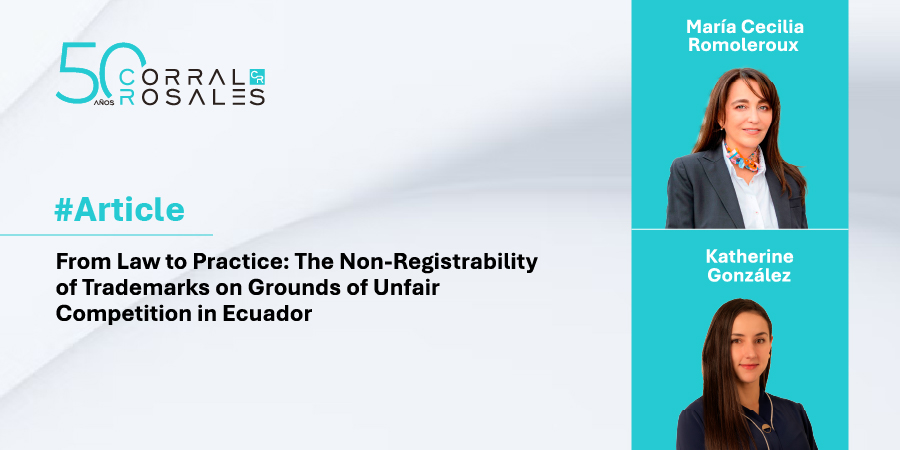The Board of Directors of the Mining Regulation and Control Agency (“ARCOM”), through Resolutions No. ARCOM-002/25, No. ARCOM-004/25, and No. ARCOM-005/25 has amended the regulations governing control and oversight in the mining sector.
These reforms aim to address key challenges in the mining industry, particularly regarding transparency, traceability, and efficiency in administrative processes. They also establish the requirements, documentation, and procedures necessary to obtain the “Certificate of Export of Mining Products,” which is required for the legal export of metallic and non-metallic minerals by small-, medium-, and large-scale mining operations in Ecuador.
Below is a summary of the most important changes introduced by the three resolutions:
Resolution No. ARCOM-002/25 – INSTRUCTIONS FOR THE MINING REGISTRY OF THE MINING REGULATION AND CONTROL AGENCY
- Technological modernization of the registry. All registrations must be carried out through standardized technological systems, according to the guidelines set by the Ministry of Telecommunications.
- Designation of registry officers in each District Directorate. Each office must have qualified personnel legally responsible for processing registrations. These officers must meet specific requirements (law degree, 3 years of experience, Ecuadorian nationality).
- Strict deadlines and accountability. Registry officers will have three (3) days to process applications. Failure to do so without justification will trigger disciplinary proceedings.
- Creation of the Digital Record Book. This electronic book will be the sole valid method to log applications, replacing physical records. ARCOM will soon publish a Methodological Guide for its use.
- Detailed contents of the new Mining Registry. The updated registry must include:
- Concessions, amendments, objections, and relinquishments.
- Suspensions, expirations, and nullifications.
- Licenses for mineral trading and export.
- Authorizations for processing and beneficiation plants.
- Mining associations and cooperatives.
- Succession-based effective possession.
- Other actions as determined by ARCOM’s Board.
- Processing procedures initiated before May 2023. These will continue under the previous regulation. Physical registry books must be submitted to the Executive Director within 3 days and fully digitized within 12 months.
- Purpose of the new instruction. This new instruction reflects ARCOM’s commitment to a more orderly, modern, and supervised mining sector. By digitizing the registry and assigning individual responsibility for recorded data, it protects state assets, combats informality, and strengthens legal certainty.
Resolution No. ARCOM-004/25 – REGULATION FOR THE CONTROL OF MINERAL EXPORTS
- The regulation applies to holders of mining rights operating under small, medium, and large-scale mining regimes. Both individuals and companies must comply with its provisions if they intend to export minerals from Ecuador.
- Production Certificate. Issued by authorized mining titleholders, this document must detail the volume, origin, mineral type, purity, and other technical data. Only analyses conducted by laboratories accredited by the Ecuadorian Accreditation Service (“SAE”) will be valid.
- Packing List. A detailed inventory of each shipment, including weights, destination, port of exit, and other verification data. This document must be electronically signed.
- Certificate of Export of Mining Products. Issued exclusively by ARCOM, this certificate legally authorizes the export of minerals. No exports may proceed without it.
- Fee structure. Medium- and large-scale mining companies must pay an annual fee for certificates, while small-scale miners will pay a fee per export.
- Laboratory requirements. All chemical analyses (purity, concentration, moisture, penalizing metals, etc.) must be conducted by accredited and registered laboratories. Results must be delivered within 25 days. Labs must retain witness samples for up to 6 months and report the presence of mercury or other elements in the samples.
- Conditions for export approval. ARCOM will not authorize exports if the mining titleholder:
- Has failed to update their tax domicile.
- Has a suspended or untraceable RUC (tax ID).
- Submits unclear, false, or incomplete information.
This regulation strengthens state control over mining and exports, establishing clear rules to ensure minerals leave the country with proper technical, legal, and tax documentation. It also promotes transparency, protects the environment, and improves institutional coordination.
Resolution No. ARCOM-005/25 – INSTRUCTIONS FOR THE PREPARATION OF CADASTRAL REPORTS AND CERTIFICATIONS
- This instruction facilitates the issuance of reports and certifications related to the National Mining Cadaster, which is a critical component of all concession and permit processes in the mining sector.
- Target audience. The instruction applies to all institutions and individuals involved in mining administration, including the Ministry of Energy and Mines, Decentralized Autonomous Governments (GADs), and mining concessionaires.
- Key regulated aspects:
- Standardized formats for cadastral reports and certifications.
- Validation of geometries and coordinates (PSAD56 and WGS84 systems).
- Unique cadastral codes for each mining right.
- Validity periods and deadlines (30 days for issuance, 30-day validity).
- Review of overlaps with environmentally, culturally, or strategically sensitive areas.
- Differentiated reporting. The instruction outlines how to prepare reports for various types of mining: artisanal and subsistence mining, small-scale mining (metallic minerals), medium-scale mining, large-scale mining, and small-scale mining (non-metallic minerals).
- Mandatory nationwide use. The instruction applies nationwide and must be used by ARCOM officials, the Ministry of Energy and Mines, GADs that manage construction materials, and individuals or companies handling mining rights under any regime (artisanal, small-, medium-, or large-scale mining).
Purpose of the instruction. This regulation provides Ecuador with a modern and robust tool that will help reduce conflicts, improve the quality of technical information, and streamline administrative procedures.
 Carlos Torres, Senior Associate at CorralRosales
Carlos Torres, Senior Associate at CorralRosales
ctorres@corralrosales.com
+593 2 2544144

















